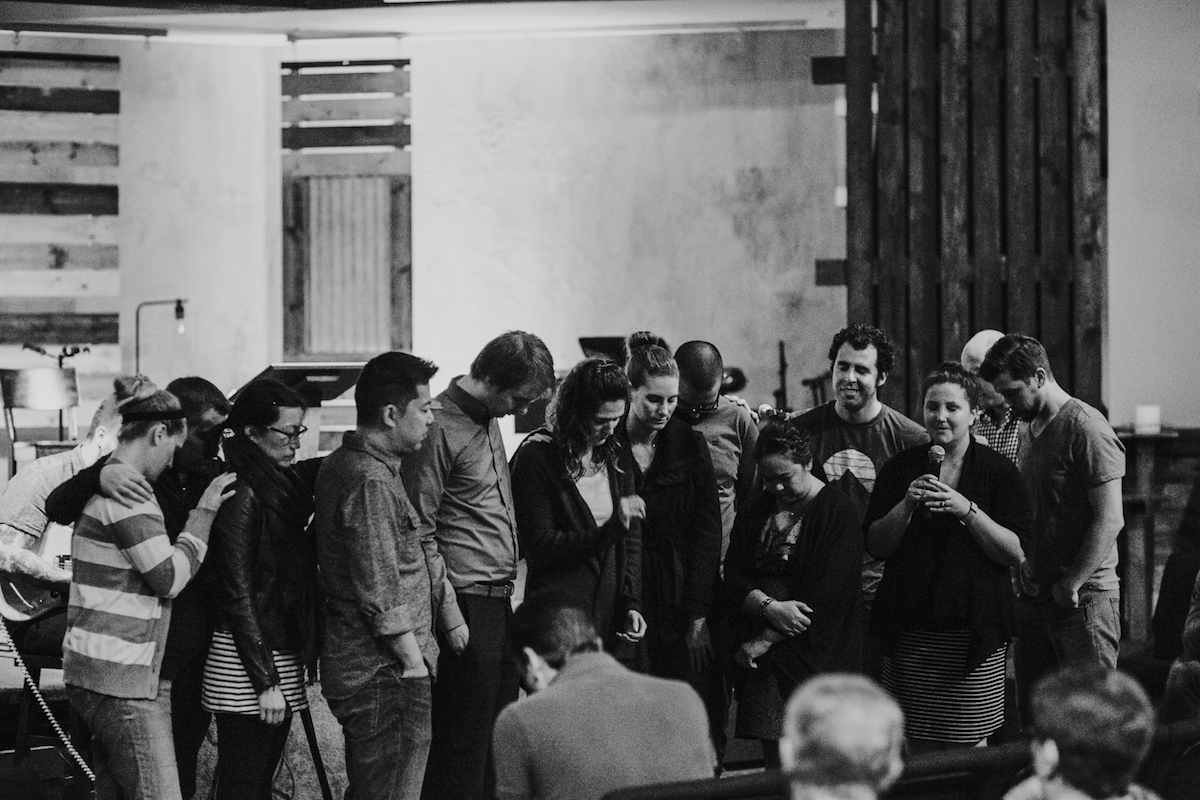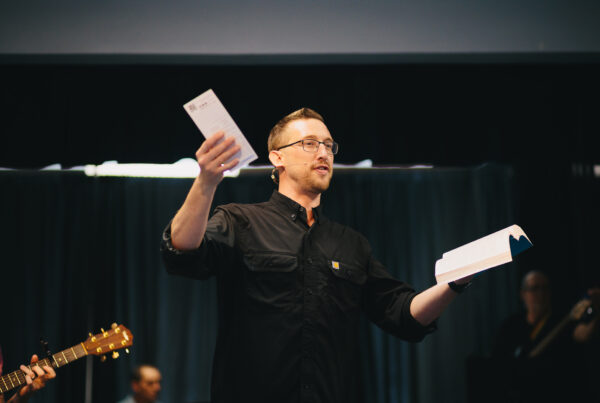Global Gathering Sponsor – Lucid Books
Over the past fifteen years I’ve had the distinct privilege of participating in three different Acts 29 church plants. I have served as a road crew member, youth ministry leader, pulpit filler, sound guy, drummer, launch team member, founding elder, community pastor, and now I am serving the church I planted in 2011 as the Lead Pastor and Elder. Throughout the entire scope of my church planting adventure, I have always been intentionally and strategically bi-vocational.
I have done various things to help make ends meet, and not all of them were ministry focused. From pressure washing, to website design, to business coaching, to speaking — nothing has made more sense than starting Lucid Books, a partnership book publishing company.
Throughout the entire scope of my church planting adventure, I’ve been intentionally & strategically bi-vocational.
I remember it like it was yesterday. I was sitting across the table from one of my mentors, Rod Brace, who said to me, “I have this idea for a publishing company.” He proceeded to tell me his entire plan for a company whose mission, unlike the traditional publishing model, would be author-focused. To be honest, I wasn’t really sure why he was telling me about it. But since he had been my friend for over 5 years and had abundantly invested in me and Steph, I figured I would hear him out.
When he finished sharing all of his ideas, diagrams, and so on, he asked me what I thought. I told him it sounded like a brilliant idea. The next thing he said shocked me: “I want it to be yours.” He told me that I should consider other ways to generate income so that I could avoid being a burden on the church.
In the next few weeks he had me develop a business plan and a proposal for funding. After he and his wife reviewed everything, they gave us a financial gift, all of his plans, and their blessings. This is how Lucid Books came to be. Although it has transformed into a different type of publishing house than we started out with, it still is created with the author in mind.
As a church planter, I am often asked how I can afford to plant a church and take care of my family. I usually tell them what I’ve learned about bi-vocational church planting, and I often share the following tips:
- Be willing to work hard: Unless you are planting a church from an existing core group or from a large church that is supportive of church planting, you will find yourself needing to raise some substantial capital. In addition to raising money for the church, you will need to be able to provide for your family. Church planting is HARD work, but the hard work usually does not end with the church. You must be willing to work hard doing what it takes to take care of your family.
- Start a scalable business: When Steph and I moved to Brenham to help plant what is now Redeemer Church, the church didn’t have the resources to pay our lead pastor and myself (the community pastor). I had to earn money elsewhere. While I was still speaking nearly full-time and publishing books, I also had to do other things. I noticed that there were a lot of dirty driveways and sidewalks in Brenham, so I started a pressure washing company. Using word of mouth, business cards, social media, and a simple website, I was able to secure enough work to supplement my income. Additionally, I began building websites with a pre-existing server-based platform for customers in Brenham. This enabled me to use some skills I had acquired growing up to work my own hours, provide for my family, and still focus primarily on ministry.
- Get a flexible job: If you don’t want to start a business, you should find a job that is flexible. I know one pastor who is a firefighter, and others who substitute teach. I encourage guys to think about finding work that will enable them to interact with people in the community where they are hoping to plant a church.
- Set financial goals: The point in working these other jobs as a minister/church planter is not to get rich, but to provide for your family. Hopefully your ministry will grow. As it does, you need to be able to know when you can begin transitioning out of these other obligations to focus more on your primary calling. With Lucid Books, for instance, I have an excellent team. They run the day-to-day business, so I needed to draw fewer financial resources from the company to ensure they are paid. This was a necessary step so that I could be allowed to focus on my primary calling of ministry leadership through communicating, coaching, and consulting.
- Fall in love with systems: I’m not naturally a systems guy, but I LOVE the benefits of having strong systems. Systems enable you to maximize your time and effectiveness by ensuring that the other things in your ministry and business(es) are being accomplished. Two books that really helped me think through this are E-Myth Revisited and System Busters. I have not “arrived” in this area, but when people ask me how I keep sane in the midst of pastoring, speaking, coaching, and writing, I always point to having systems.
As a church planter, I am often asked how I can afford to plant a church and take care of my family.
I know some might object that doing other work will distract from the work of ministry, and at times this is true. However, I usually respond that if a man is called to plant/pastor a church and the church is unable to fully provide for him and his family, the man’s responsibility is to his family first. It is also helpful to understand that paid work is not merely a means to an end. Rather than being a distraction from the ‘real’ work of ministry, other work can provide unique opportunities for gospel endeavor as you become involved in your local community, get to know people with whom you may be able to share the gospel, and model a life of gospel-centered priorities (hospitality, generosity, sacrifice) in the midst of a busy schedule. Not to mention the fact that it didn’t seem to distract Paul who, as we know, was bi-vocational!
Furthermore, if a man starts a business he loves and decides he is not called to full-time ministry, it’s a win for all involved. The last thing the church needs is a pastor whose passions and affections are elsewhere. There are some folks who can really only focus on one thing, and to them I usually counsel that, unless they are able to raise the funds necessary to plant a church, they may be better suited to pastor an established church that can meet their financial needs. There are plenty of churches out there who need excellent pastors.











